If you were captivated by the intricate storytelling and historical depth of 'Nixon' (1995), you're in for a treat. This article explores 10 movies and shows that share similar themes of political intrigue, biographical drama, and complex character studies. Whether you're a history buff or a fan of gripping narratives, these recommendations will keep you engaged and entertained.

The Manchurian Candidate (1962)
Description: This Cold War-era thriller shares with 'Nixon' a paranoid vision of American politics, where hidden forces manipulate events behind the scenes. Both films explore themes of psychological manipulation and the vulnerability of democratic institutions. The original 'Manchurian Candidate' was actually withdrawn from circulation after JFK's assassination.
Fact: Angela Lansbury played the manipulative mother despite being only three years older than Laurence Harvey. Frank Sinatra, who starred in the film, helped get it re-released in the 1980s. The film was remade in 2004 with Denzel Washington.
 Watch Now
Watch Now 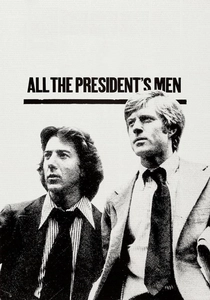
All the President's Men (1976)
Description: This film shares a deep connection with 'Nixon' as both delve into the Watergate scandal, albeit from different perspectives. While 'Nixon' focuses on the titular president's downfall, 'All the President's Men' chronicles the investigative journalism of Woodward and Bernstein that led to Nixon's resignation. Both films explore themes of power, corruption, and the consequences of unchecked authority.
Fact: The film is based on the non-fiction book of the same name by Carl Bernstein and Bob Woodward. Robert Redford, who played Woodward, was instrumental in getting the film made. The movie won four Academy Awards, including Best Supporting Actor for Jason Robards.
 Watch Now
Watch Now 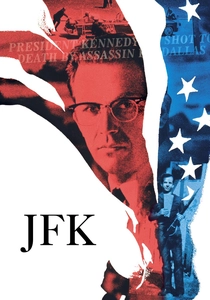
JFK (1991)
Description: Oliver Stone's 'JFK' shares with 'Nixon' a fascination with American political conspiracies and the darker aspects of presidential power. Both films employ a mix of historical fact and dramatic interpretation to explore their subjects. Stone's signature style—rapid editing, multiple film stocks, and a conspiratorial tone—is evident in both films.
Fact: The film's release led to the creation of the Assassination Records Review Board. Kevin Costner's closing courtroom monologue lasted over 10 minutes. The film was nominated for eight Academy Awards, winning two.
 Watch Now
Watch Now 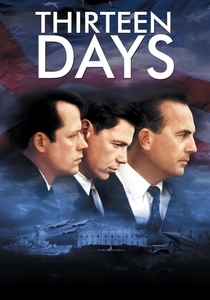
Thirteen Days (2000)
Description: Like 'Nixon', this film examines a pivotal crisis in American presidential history—the Cuban Missile Crisis. Both films showcase the intense pressure of decision-making at the highest levels of government and the personal toll it takes on leaders. The claustrophobic tension of the White House during crises is a shared element.
Fact: Kevin Costner's character, Kenny O'Donnell, was significantly embellished for dramatic purposes. The film uses actual recordings from EXCOMM meetings during the crisis. Bruce Greenwood's portrayal of JFK was widely praised for its accuracy.
 Watch Now
Watch Now 
The Queen (2006)
Description: While not about American politics, 'The Queen' shares with 'Nixon' an intimate portrait of a leader during a crisis of public confidence. Both films explore how personal psychology affects leadership during turbulent times. The examination of how media shapes public perception of leaders is another parallel.
Fact: Helen Mirren studied the Queen's movements for months to perfect her portrayal. The film was shot at many actual royal locations. Tony Blair consulted with the filmmakers about his portrayal.
 Watch Now
Watch Now 
Charlie Wilson's War (2007)
Description: Like 'Nixon', this film examines American foreign policy through the lens of a charismatic but flawed political figure. Both films show how personal quirks and vices can influence global events. The shadowy world of backroom deals and unintended consequences is a theme common to both.
Fact: Tom Hanks gained 15 pounds to play the hard-drinking congressman. The real Charlie Wilson served as a consultant on the film. Philip Seymour Hoffman's performance as Gust Avrakotos earned him an Oscar nomination.
 Watch Now
Watch Now 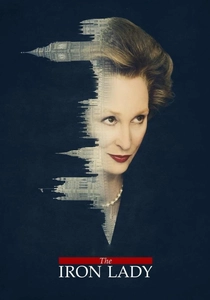
The Iron Lady (2011)
Description: Like 'Nixon', this biopic examines a controversial political leader through the lens of their later years, reflecting on their legacy. Both films use flashbacks to contrast past triumphs with present vulnerabilities. The exploration of how power isolates and changes individuals is central to both narratives.
Fact: Meryl Streep spent a year preparing for the role, including working with a vocal coach. The film was criticized by some of Thatcher's allies for its portrayal of her dementia. Streep won her third Oscar for this performance.
 Watch Now
Watch Now 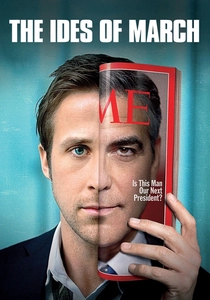
The Ides of March (2011)
Description: This political drama shares with 'Nixon' an exploration of moral compromise in pursuit of power. Both films depict charismatic leaders whose flaws and questionable decisions lead to their downfall. The cynical view of politics as a game where idealism is inevitably sacrificed resonates in both stories.
Fact: The film is based on the play 'Farragut North' by Beau Willimon. George Clooney, who directed and co-wrote the film, also plays the presidential candidate. The title references the warning given to Julius Caesar about March
 Watch Now
Watch Now 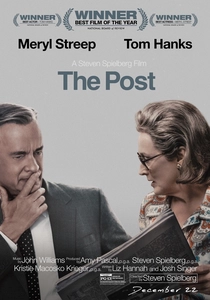
The Post (2017)
Description: Like 'Nixon', 'The Post' is a political drama that examines the intersection of media and government. It focuses on the Pentagon Papers, another pivotal moment in U.S. history that tested the limits of press freedom and government transparency. Both films highlight the tension between the executive branch and the media, a theme central to 'Nixon'.
Fact: Meryl Streep and Tom Hanks star as Katharine Graham and Ben Bradlee, respectively. This was the first collaboration between Streep, Hanks, and director Steven Spielberg. The film was shot in just 38 days.
 Watch Now
Watch Now 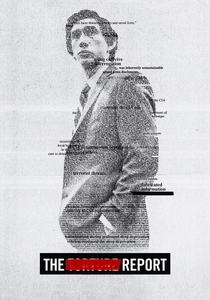
The Report (2019)
Description: This investigative drama shares with 'Nixon' a focus on government misconduct and the individuals who risk everything to expose it. Both films depict the tension between national security and democratic accountability. The painstaking research process shown in 'The Report' mirrors the investigative journalism in 'All the President's Men', which is closely related to 'Nixon'.
Fact: Adam Driver lost 20 pounds to play investigator Daniel Jones. The real Daniel Jones consulted on the film. The film's release coincided with renewed debates about CIA interrogation techniques.
 Watch Now
Watch Now 








